1 / 4
News
FIA Thursday press conference - Monaco
Team representatives - Federico Gastaldi (Lotus), Claire Williams (Williams), Eric Boullier (McLaren), Toto Wolff (Mercedes), Christian Horner (Red Bull Racing), Marco Mattiacci (Ferrari)
Q: Let’s start with Claire Williams. Claire a strong performance for the team in Barcelona but in some of the earlier races you maybe let a few points fall by the wayside. Where do you feel you are at and are you on the right track?
Claire Williams: I think we are in a really good position now. I think we all have to remember where we were last year and to make the performance improvement that we have over finishing P9 in 2013, I think the team have done a fantastic job to turn things around in the way that they have. We entered this season always wanting to get both cars in the top 10 in qualifying and then to score points in the race and we’ve pretty much achieved that, so I think everyone at Williams should be really proud of what they’ve achieved. I think you can always look back and go ‘I wish we could have done a bit better’ and we potentially could have scored a few more points but I think we should all be pretty pleased with P5 in the championship at this time.
Q: Thank you for that. Moving on to Federico. Quite a progression for you from Melbourne to Barcelona, in just two months, and a promising test after the grand prix, where do you feel your team is at in the development cycle and which teams are you targeting to challenge at this point?
Federico Gastaldi: Well, we have done, obviously, a progress from the start of the season but we’re still working on it; we’re not where we want to be. We want to be in front of our friends with the red jacket, as we were last year, fighting in that position. So that’s our target pretty much - to go back to where we were last year.
Q: Thank you for that. Moving to Eric. Obviously you’ve had a few months now at McLaren; what have you discovered, what changes would you like to make and how will you manage the split development programme as the year goes on between the 2014 car and the 2015 Honda car?
Eric Boullier: Yeah, it’s been a few months. Obviously it’s a great team. It’s an institution I should say. I did settle in very well. Obviously we are not performing at all where we should be or where we want to be, so there is obviously a lot of time to spend to go through as a company and find out to what needs to be fine-tuned or changed to make the team better. It’s true that actually it was a last week debate about the transition between 2014 and 2015. It’s a decision we have to do shortly shall we say because obviously as you know most of the teams switch their resources during summer and like usual I should say. This is where we will be but we have started already to work on next year’s car.
Q: Christian, tell us about the opportunity that this race here in Monaco presents to Red Bull at this stage of the season and also the progress going on behind the scenes to catch Mercedes on a regular basis.
Christian Horner: Obviously Monte Carlo is a unique track and its layout, the nature of the circuit, doesn’t put such a premium on straight-line performance, which has been our weakness this year. So we’re hoping to give these guys [Mercedes] a run for their money this weekend. For sure they’re going to be strong again here. They’ve always been strong in Monaco. But we’ve had a solid day today, the drivers have been feeling their way into the circuit and working on the set-up and it’s been an encouraging start to the weekend. Obviously when you consider where we were pre-season to where we’ve come to at this stage, we’ve come a pretty long way in a couple of months and hopefully if we can keep that rate of progress up then we will be able to challenge the two Mercedes drivers before hopefully too long in the future.
Q: Coming to you Toto, it looks like it’s going to be another close one between your two drivers, Lewis Hamilton and Nico Rosberg, this weekend. What does that battle look like from inside the team and how is it to manage?
Toto Wolff: It is of course a nice problem to have, to have two cars up in the front battling with each other. They do it fair and square. We haven’t seen any incidents up until now and I hope we can sustain that. Having said that we musn’t be complacent, because Red Bull... Ricciardo was very close today and obviously Monaco is a track where horsepower doesn’t matter so much and straight line speed doesn’t matter so much, you can see that the gaps have narrowed a bit today, at least from what you have seen in free practice one, so interesting times.
Q: Coming to you Marco. Welcome to your first FIA press conference. A rapid learning curve for you. Do you already have a vision of the kind of Ferrari team you want to lead?
Marco Mattiacci: I would be extremely arrogant in saying that we already have a vision. Definitely we are having a picture, a quite accurate picture of the problems we have experience so far. It is clear the gap toward the leader of the championship. So we are clear what are going to be the next steps. I wouldn’t say vision, we know that we need to have a continuous improvement every race and that’s the way we are working. We have a lot of assets, as I have said, very positive people, drivers but definitely there is the need to improve dramatically.
Q: Okay, a second question to all of you. The current situation is that the teams have agreed to pursue cost control through technical and sporting regulations. How is this process developing? Claire, would you kick us off with that one?
CW: I think the most important thing with this consideration is that everybody is committed to ensuring that we can drive down costs in Formula One. So there is a lot of work going on behind the scenes with the full group of team principals and then within the Strategy Group as well and as long as we keep working hard then I believe we can drive costs down for the benefit for everybody in our sport.
Q: Federico?
FG: Same thing here. We are all working very hard together. It’s good that all the teams are in the same boat. We are all trying to reduce the cost. It would be good for all of us to go into a different direction at this stage and try to make things easier for most of us.
Q: Eric.
EB: I think Claire said everything. It’s true that as long as everybody has the same aim to go for cost reduction then we should achieve something which is reasonable.
Q: Christian.
CH: I think the key place to reduce the costs is in the Sporting Regs. That’s where the biggest cost drivers are, so there is a lot of focus on that in the different groups. I think there is some constructive discussion. I would think so far we’ve probably saved about €10,000 but we’re going in the right direction and hopefully through the process of the next month, before regulations are fixed for next year, we can come up with some significant savings.
Q: Toto, anything to add?
TW: Yeah, I think it’s a very productive process. Obviously getting everybody under the same roof or agreeing to the same principal is very difficult because the teams have very different agendas from the very small privately owned team to teams representing multinational, global companies or a branding exercise. This is quite a difficult, painful process, but I think we are at the stage where we have recognised that we have to do something. And although we are only at €10,000 I’m hopeful that it’s going to be more in the next couple of weeks.
Q: Marco, your thoughts on this process.
MM: I have had also so far two meetings and I think that definitely there is a very string intention to reduce costs. Probably we need to be all aligned to make a productive and tangible step. Having said that I think we can do more, having always in mind that Formula One has to provide the best possible technology and entertainment and that’s clear to all the stakeholders here at the table. But definitely we are doing some productive steps in that direction.
QUESTIONS FROM THE FLOOR
Q: (Livio Oricchio - Universo On Line) It’s a question for all you? What’s your view about the fact that Barcelona the pole position this year was 4.5 seconds slower than last year and the fact that pole position in GP2 would permit the driver to start in 14th position on the grid. And specifically to you, Mr Marco, did you invite Adrian Newey to work at Ferrari?
MM: First of all I think they are doing an excellent job. We need to recognise that Mercedes has the leadership because they have been working in an excellent way. Having said that is it good for the audience? Is it good to entertain the public? I have some doubts about that. But there are different avenues that we are discussing about that issue, as I said, you know to reduce costs and in order to deliver a better product in Formula One.
Q: And do you have a specific response to the Newey question?
MM: If I invite Adrian Newey to work at Ferrari? No.
Q: Let’s get some other responses to the question about the four-and-a-half seconds in Barcelona. Eric, let’s start with you?
EB: I think if the cars are slower obviously there is some technical reason for that and there is some aim with the technical regulations to make the cars slower. All the cars are shall we say aerodynamically less performing. We lost obviously the blowing at the back of the car. Tyres are more conservative than last year and obviously the new engine, power unit let’s say, is different to manage, so I don’t see any downside to be slower, because historically every time there was a big change of regulation the cars were slower and obviously this is to keep the excitement let’s say within the engineering group to make sure you know that we can recover the speed over the next months, years. I don’t know how long it will take but I’m pretty sure we will recover some speed. Then the second question about the GP2 pace. GP2 should maybe go as well for a cost reduction programme, which will maybe make the cars slower as well.
Q: Claire, anything to add?
CW: I think everyone’s really answered it, what I would like say. We’re here to put on some great racing and this season has delivered some fantastic races so far, from the front of the grid to the back of the grid.
Q: Federico?
FG: Same thing; I agree. It's new regulations, we all agree to go through this and now we are working to try to give the best show. That’s what we are here for.
Q: Toto?
TW: It’s an interesting question and if you look at the timing screens you get a completely false picture. If you cut back the aerodynamics by 25 percent, if you cut back the blowing, you have different tyres, you can’ expect the cars to go quicker. On the straight in Barcelona, the fastest car was doing 347kph compared to 318 last year. So in Monza I don’t know what we will be seeing, but 380 maybe? So the point is we have lost downforce and this is the main reason the cars are slower.
Q: Anything to add Christian, finally?
CH: I don’t think we’ll be seeing 380 from our car in Monza.
Q: (Walter Koster - Saarbrucker Zeitung) Mr Wolff, Niki Lauda said Mercedes has not the intention to win all the races, this situation is not good for Formula One and the fans. I have this paper here in my hands. Niki feels a season like McLaren in ’88, with 15 wins in 16 races, or Ferrari in 2004, with 15 wins in 18 races, but with all the wins this season Mercedes could have a new record in Formula One history. For me the words of Niki are a little bit strange. I hope he’s not crazy. Do you share his view and agree with him?
TW: We can try, not to win all the races! I guess it’s much too premature to talk about winning all the races, this would be super-arrogant. We have won five races so far. You can come back to that question or address that question once you have won 15. At the moment our agenda is to win the race three days from now.
Q: (Ian Parkes - PA) You’ve talked about the need to cut costs, you say you’re determined to try and do that, yet following the meeting on May 1st at Biggin Hill, FIA President Jean Todt described the proposals on the table as “a joke”. Another well-placed source has said to be that those proposals were “pathetic”. Why is it that you’re not doing more to cut the costs? Could it be that one of the agendas that was on the table at the most recent meeting was customer cars and perhaps you’re prepared to see the demise of two of the lesser teams - maybe even more than that - to introduce customer cars from maybe next season or the season after.
CH: I think the problem with putting competitors in a room to try and find a way to save costs, when different teams have different models, different philosophies about how they go racing is very, very difficult. I think that is part of the challenge. I think everybody is unanimous in the fact they want to reduce costs but then obviously we’re all driving our costs up through competition. So it’s, in many ways… you’re on a hiding to nothing in doing that and that’s where obviously I think the promoter and the regulator need to get together and say “this is what Formula One is going to be,” and then the teams have the choice of whether they enter the championship or not ultimately. On the subject of customer cars, it’s obviously a thorny subject but if you were to look at… say for example, forget the existing teams, but new teams, to encourage new teams to come into Formula One then a year-old car would surely be the most cheapest, more cost-effective way of introducing a team into Formula One that hasn’t got to have the investment in a design and R&D department, manufacturing, go through all the crash-test process, can just be focussed on being a race team while they build their infrastructure up. One would think that might be a logical way to help the small team and perhaps a new team coming into Formula One.
Q: Toto?
TW: How do you close the gap between a privately owned team, owned by a millionaire who enjoys going racing and a multinational global brand that tries to promote its products? It’s impossible. So the question is: do we want to close the gap, narrow the gap of the cars and make the racing more tight, or do we want to really cut costs. I think it’s super-difficult, you know? At first sight it looks very simple but then how do you want to police it? How do you want to look into Honda in Japan? How do you want to look into the various models of organisation? Why should Ferrari ever accept anybody looking into their operation when F1 is part of the road car business. It’s just unpoliceable. At the moment it’s unpoliceable. It doesn’t function. So there are many agendas, many different models and we need to bring all that under one umbrella, and it’s so complicated.
Q: Marco, anything to add?
MM: I agree with the gentlemen, it’s a very difficult task. Because if we think to reduce dramatically the gap between a top team and an entry team… I think it’s a moonshot. It is going to be a big price again from the racing, from the product of Formula One. I agree with Christian, the problem is supporting more the customer cars, is an entry level definitely but basically give then the possibility to have two, three years’ experience and to gain the knowledge and then to become competitive. So, this is a practical way, realpolitik, to move ahead - but definitely to imagine that all the teams can have the same budget, a budget cap, I don’t think is a direction that we want to take.
Q: Claire, how do you feel about that?
CW: I couldn’t really hear what Marco was saying, sorry, I’ve got background noise in here. But just from a Williams perspective, I think Christian summed it up well in that, you’re in a room and you’ve got a whole load of very competitive people running their teams in very different ways around a table, trying to align around cost control. And this isn’t a new conversation in Formula One but we’ve all got to remain committed to trying to reduce those costs, which we are. I think it’s still early days in the process and a lot of people… we know what we’re discussing but those conversations pretty much stay in the room. I just hope that we can, at the end of the day, whenever these conversations finish, we have driven down costs in Formula One. Everyone knows Williams’ position on customer cars - we think it goes completely against the DNA of our sport. We’re not signed up to it and we think there are other ways to drive costs down in Formula One before we have to have that conversation.
Q: Anything to add Eric?
EB: Not much.
Q: Federico?
FG: Not much, not really. Same thing. Teams related to the car manufacturers, they have a different engine to us but as Toto said we are here to make this happen. Yes, we have different agendas but the good thing the good thing again is that we’re in the same boat. We just need to make sure we’re on the same page.
Q: (Dieter Rencken - Racing Lines) We’ve heard a lot today about closing up the gaps in competition, Toto, you were quoted a couple of weeks ago saying part of the reason for two teams winning the 14 last races is due to the spending war. If we do really want to close the gap between front and rear, is it actually possible when four of you teams represented here today share an incremental $250million per annum?
TW: Do you think Dieter it’s on our agenda to close the gap between the teams? I think it is not on my agenda. On my agenda is to win races and win the World Championship and each of these lady and gentleman’s agenda it to be the most competitive. That’s the first thing. To address the second question, it is also an income question. Obviously we know income is spread in different ways. Just or not right I do not want to comment but the fact is some of the bigger teams have an almost break-even operation due to sponsorship income, due to FOM income, rights income, so the question is: do you want to spend your money and in which way do you want to spend your money? I guess it’s down to the team and this is why it’s so complicated.
Q: Federico?
FG: Again, it’s about being competitive, y’know? We obviously need to work on our budgets, each of us have different budgets to run the programme with but it’s also about how the money is given to each team. So, were still working on it, it’s not easy.
Q: Eric?
EB: It’s always the same story. Let’s say for the fans, for the show, for the show on the track, you would like to have, obviously, a different winner every weekend. As the team principal of McLaren I would like McLaren to win the 19 races. From that point, you understand we all have the same opinion, I guess, and this is where obviously you have to work, let’s say, on the regulation again to make sure that you can achieve what we have, actually, in the last years. But to start a new era, a new cycle. I’m happy in some way that Mercedes spends that money because it makes obviously the car not too slow compared with last year.
Q: Claire, anything to add?
CW: I think it’s up to… I don’t want to comment on the division of money in Formula One. It is what it is, it’s been that way in our sport for years and who knows if it will change or not? But then it’s up to every team to go out and get their budget after they’ve been allocated their prize fund money, which is obviously what Williams has done for years. I think we’ve been a team that have proven you don’t necessarily need a huge amount of money to win a World Championship in Formula One and I hope that we can do that in the future. It’s about how you allocate your resources and getting the best talent for the budget you have. But I think Mercedes have done a great job this year and it’s up to everybody else down the back of the grid to try and bring the competition to them.
Q: Christian?
CH: I think it’s too easy to say ‘you’ve got the most money so you’re going to win the races’, whether that’s Mercedes this year or Red Bull or whatever. If you look at it, yes, two teams have won all the races in the last 12 months but Ferrari and McLaren have no less a budget. So it’s down to the people, down to the skill and how you apply those budgets. It’s the skill of a team, it’s the skill of the drivers, it’s the skill of a company how it’s applying those resources to achieve the results that are there. I think that’s the element of competition. That’s the way it’s always been in Formula One from the 50s all the way through to the present day. It’s a brutal competition and it’s survival of the fittest. Which is why so many teams - I think more than 200 teams - have passed through Formula One since the Formula One World Championship started.
Q: Marco, your perspective on this as a newcomer to the sport.
MM: Again I repeat myself. Formula One stands for the best competition, the best in class technology, best drivers, best organisation. The people, the team that can put together all these elements win. I think to dilute these values of Formula One, looking for some kind of equality I think could be something that could harm dramatically the product of Formula One. So, I think that absolutely we need to be careful to go down that path. As I said, we need to be cautious controlling the cost but we need to deliver that product that’s made Formula One successful. So to be the best of motorsport.
Q: (Haoran Zhou - Formula One Express) A question to Christian. You always have some great numbers on your engine performance. You say you’re losing eight-tenths on the back straight of Shanghai. Here, there are some of those zones after Turn One there is a big uphill and also the tunnel. Do you have some numbers for this race?
CH: Not yet, no, it’s certainly closer and of course Renault are working very hard with Total as well to reduce the gap to Mercedes. We made a bit of a step in Barcelona and we feel that we’re a little bit closer again this weekend but I think that our biggest test is going to be in two weeks in Montreal as opposed to around the streets in Monte Carlo.
Q: (Luigi Perna - La Gazzetta dello Sport) Question for Mattiacci. Are you confident you can close the gap to Mercedes during the season and when will be the moment to switch your efforts for next season’s car?
MM: I think that we are confident as Ferrari that we are striving to improve every race and to be competitive. That’s the thing that I’m absolutely sure. We can see little by little that we are going in the right direction. As I said, Mercedes has done an impressive job and an impressive leadership but I think, what are we doing? We have two great drivers and a team that is really, really focussed on closing the gap.
Q: When will be the moment to switch your efforts to next season?
MM: It’s too early to make this call.
Q: (Sven Haidinger - Sport Woche) Question for Toto. Of course we all know that Mercedes is in Formula One for marketing reasons and for coverage, so do you prefer a one-two finish, a boring race or do you prefer your drivers to race wheel-to-wheel. What do you prefer?
TW: Well, if it would be a Christmas wishlist, I would like to repeat Bahrain, having close wheel-to-wheel racing for all fans, for Formula One and nevertheless be very competitive up at the front.
Q: (Oliver Brown - Daily Telegraph) Question for Toto and Christian. It’s been a season dominated by the duel between Nico and Lewis up front. It seems a few years since Formula One has had a great team rivalry. I just wondered if you felt that Formula One needs a consistent and compelling rivalry to provide the best possible entertainment.
CH: I think if you look back in recent past, if you look at the rivalry that we’ve had with Ferrari, the World Championship going to the wire in 2010 and in 2012, it wasn’t settled until the final race. I think that’s a utopia situation. I think that Mercedes are doing a super job at the moment and they have a rivalry within their own team and it’s down to the rest of us to do a good job to try and catch them up and put them under pressure. But I think it is healthy for the sport, there does need to be rivalry. Sometimes we live in a too politically correct world and the rivalry is healthy in sport, whether that be between teams or between sportsmen.
Q: Toto?
TW: Christian covered it all.
Q: (Silvia Renee Arias - Parabrisas) Question for Mr Federico Gastaldi: I would love to know what are your personal feelings after these few races in your new role in the team?
FG: Help! My personal feelings; I’ve been around enough. Obviously the start of the season has not been easy for our team but we need to work and understand how to progress so we have already shown some improvements in Barcelona which has been quite positive for all the team - for the drivers to understand where we are going, so we have to keep working.
Q: (Fulvio Solms - Corriere dello Sport) Mr Mattiacci: in the last years, Ferrari was often close to winning the championship. Now it looks like this aim has returned on a medium to long term. Can you say how long is this term in your plans?
MM: There is a lot of work to be done. I don’t want to give any deadline, definitely it’s a medium term but we are going to come back competitive. This is for sure. We are working 24/7, were going to come back competitive, that’s for sure.
Q: (Renan Do Couto - Warm Up) Question for Mattiacci: Marco, I would like you to put yourself in the position of Luca di Montezemolo with Stefano just having resigned. Marco Mattiacci: would you look at yourself and hire you to be the new Ferrari team principal and why would you, or why wouldn’t you?
MM: The only place where I want to focus my energy at the moment is in Marco Mattiacci, so far away from me to put in the heads on the shoulders of someone else, so I’m not going to answer that.
Q: (Dieter Rencken - Racing Lines) I’d like to come back to the other question; Christian, first of all, it’s about a hundred teams that have gone under in the last 70 years, not two hundred. But apart from that, whilst Formula One has always been a meritocracy and yes, the top teams have always earned more, never in the past have four teams shared an incremental amount of this value, even if they finished last in the championship, which effectively what happens now and that’s the point that I was trying to make. Can we ever have a fair competition as long as four teams share such exorbitant amounts of money?
CH: I knew I was going to get that question, because Dieter only asks difficult questions. Look, I think that’s more of a question for Bernie. Our job, as individuals who represent our teams is to do the best job we can to represent the companies that we work for, so of course you’re going to cut the most aggressive deal that you can, and it’s down to the promoter to decide who he values and who he’s going to distribute his money to and how he’s going to distribute that. He’s chosen to distribute it the way it is, the shareholders have all agreed with that and that’s the way it is, but if you take into account the team finishing tenth in the World Championship is actually earning more than Red Bull were when they came into the sport in 2005, finishing seventh or sixth in the World Championship. So the revenues have gone up, the share is of a bigger pie and has obviously been developed over the years, but it’s very difficult to put us on the spot to answer those kind of questions because our interest is obviously to represent the teams and companies that we do as best we can.
Q: (Vincent Marre - Sports Zeitung) You were just speaking about the importance of Formula One to be a show. In the second practice, before the 31st minute, we haven’t seen a car driving, so do you think maybe the FIA could impose a rule, maybe imposing the cars to do three laps in 15 minutes or something like this? It would be the same for everybody. Are you for or against that idea?
EB: Nice to start. Well, it’s true that it’s not nice for the fans. I disagree with your comment - F1 is not a show, F1 is first of all a sport and a team sport. That’s very important. Yes, at the end there is a show on track but this is a difference for me and this is why as well: because it’s a sport, because we want to be competitive, when you know - because today we have technology which tells us the weather forecast for the weekend - we have more or less a dry weekend, you don’t want to take the risk to crash your car during the session, so in the end we had to make a choice.
CW: I think Eric probably answered it. I don’t have anything to add.
TW: We need to be careful not to go from depression to manic and back into depression and have a shortened view. Yes, we’ve had a boring session but does it mean that Formula One is boring over the season? I’ve heard different comments after Bahrain so I think you need to look at the whole and say is there anything we can optimise in wet sessions when the whole weekend is predicted to be dry? How was it in the past? I guess it was the same.
CH: We were cost-saving in the second session!
Q: (Oana Popoiu - F1 Zone) Eric, with a change to Honda next year, how much can McLaren still afford to keep fighting to improve?
EB: I think the regulations have actually been done in a great manner because the pick-up points you have on the chassis and the back of the engine for the gearbox are the same, whatever engine you want to fit in your cars so I accept that maybe a re-packaging of cooling - it’s not a big big job, let’s say, to go for another engine manufacturer. So I think the transition between this year and next year is very similar to other years.
Q: (Ian Parkes - Press Association) Christian and Claire have already given quite opposing views with regard to customer cars. Could I get the thoughts of the other four gentlemen around you, what you feel about it and in particular to Marco, I’m led to believe that Ferrari are in discussions with Gene Haas about potentially supplying a customer car for them to get on the grid from next season, which I think is what Christian was alluding to at the start.
MM: As I said, a few minutes ago, we strongly believe in customer cars. I think that if there is a way to guarantee an entry level that is less expensive than probably a top team budget it is a customer car, to give more support, probably, that’s another way to go, to go different supporting integration with customer cars but we believe in it.
EB: Well, it’s true that it’s a way to go today for a company or team to join F1 and I tend to agree with what Christian said before. The danger in that, as well it’s true that even if you need a massive investment now to create your team from scratch, you also need to protect the teams which have been investing for many years and all the teams have obviously been doing the same so I think there is a solution which could be - as I said - customer cars under certain circumstances and obviously giving some protection to the Constructors.
FG: Nothing to add really. We are in a different league; obviously we are not car manufacturers so we have to think in a different direction.
TW: Well, I have a clear view: it’s the Formula One Constructors’ championship but not the Formula One Customer championship. The entry level is high because this is the pinnacle of motor sport; we don’t want to do GP2 and make it very easy to come into Formula One. This has value if you are participating in Formula One, that has value, you need to have infrastructure and it’s like in any other business where the entry level is high because the field is so competitive - or the companies are so competitive so we believe in being a constructor. Having said that, the rules for the future nevertheless could be loosened up a bit so in order to... what you need to provide to compete in Formula One is probably left to bodywork and other parts and it’s a direction we’ve been heading to for a couple of years. I think this is a sensible step in order to guarantee a competitive field with enough cars. If we really run into a situation where the number of cars on the grid drops to a critical level - whatever that critical level is, 20 or 18 cars - I think then measures need to be taken, whether it is a third car, whether it is a customer car. Again, you open up a bunch of questions: what is a customer car, do you want to run cars to last year’s regulations, do you want to run them on balance of performance, like in GT racing? I don’t think this is Formula One so the devil lies in the detail.
Q: (Jacquelin Magnay - The Australian) I’m interested in your strategy about sponsorship and where do you draw the line. I’ve noticed here that Marlboro has a very strong association with Ferrari through Philip Morris being a sponsor. Is it appropriate for your sport to have such strong links with tobacco advertising in 2014? I’m interested from a strategy point of view from the organisation, if that’s something you’ve discussed as well.
MM: Yes, at the moment we have an excellent relationship with Philip Morris. They are doing an excellent job in terms of social responsibility. It is a partnership that has lasted for many years. It is crucial, it is fundamental to attract sponsors in Formula One because this definitely means more financial support for all the teams, at the same time getting integrated and connected with different areas and different audiences that probably Formula One doesn’t reach today so it’s more than welcome to work more deeply on that level.
EB: As McLaren, we obviously establish ourselves as a brand first and obviously we have a similar business model to my ‘red’ colleague who is also selling cars. Sponsorship today has obviously drastically improved and obviously you’re selling a brand and depending on the prestige of the brand, you can obviously adjust the price and today we are obviously a high value or highly regarded brand. Also we are developing some technology and technology business which improves the returns of the sponsorship.
CW: I think sponsorship is really difficult. It’s getting harder and harder to go out there and bring sponsors into any sport. There’s so much competition for marketing dollars these days but Williams is an independent team, the majority of our income has to derive from sponsorship so we’re working really hard in the market at the moment. There are definitely some sectors that we wouldn’t necessarily want to be partnered with - I won’t say what they would be - but we’ve done a great job commercially over the winter: as everyone knows, we’ve brought in Martini to the sport which is fantastic, not just for Williams but also for Formula One as a whole but it is a difficult business, but we’re continually out there trying to bring in new sponsors to keep Williams alive.
CH: I think the regulations on tobacco are very clear now, what can and can’t be done - and it’s mostly what can’t be done. I think Formula One obviously has moved on and if you look at Red Bull alone... Red Bull is not only a shareholder, it’s a sponsor of the team but we’ve also brought in 12 other major partners. There’s obviously a title partner in Infiniti so we go from the automotive sector through the clothing sector with the partners that we have across to communications partners such as AT&T. There is still a huge amount of interest in Formula One. If you look at the viewing figures outside of the World Cup and the Olympic Games, Formula One is the most globally covered sport in the world, so it does offer a tremendous return and that’s why we’ve justified the amount of partners that we have.
TW: I would agree. I can’t really comment on tobacco sponsorship.
FG: I think sponsors are very, very important these days for the team, for the sport so are tobacco companies welcome? Apparently they are, obviously, so why not other companies from either tobacco or alcohol, joining the other teams?
YOU MIGHT ALSO LIKE
FeatureF1 Unlocked ‘If you don’t take risks, you’re dead’ – Fred Vasseur on how he turned Ferrari back into title contenders, and his goals for 2025
News Sainz recalls his favourite memories with Ferrari and the one moment he will never forget
Feature Lawrence Barretto’s 5 bold predictions for the 2025 season – how many will come true this year?
Feature ANALYSIS: The key factor that saw ‘raw talent’ Hadjar handed his shot with RB – and what it means for ‘bridesmaid’ Tsunoda

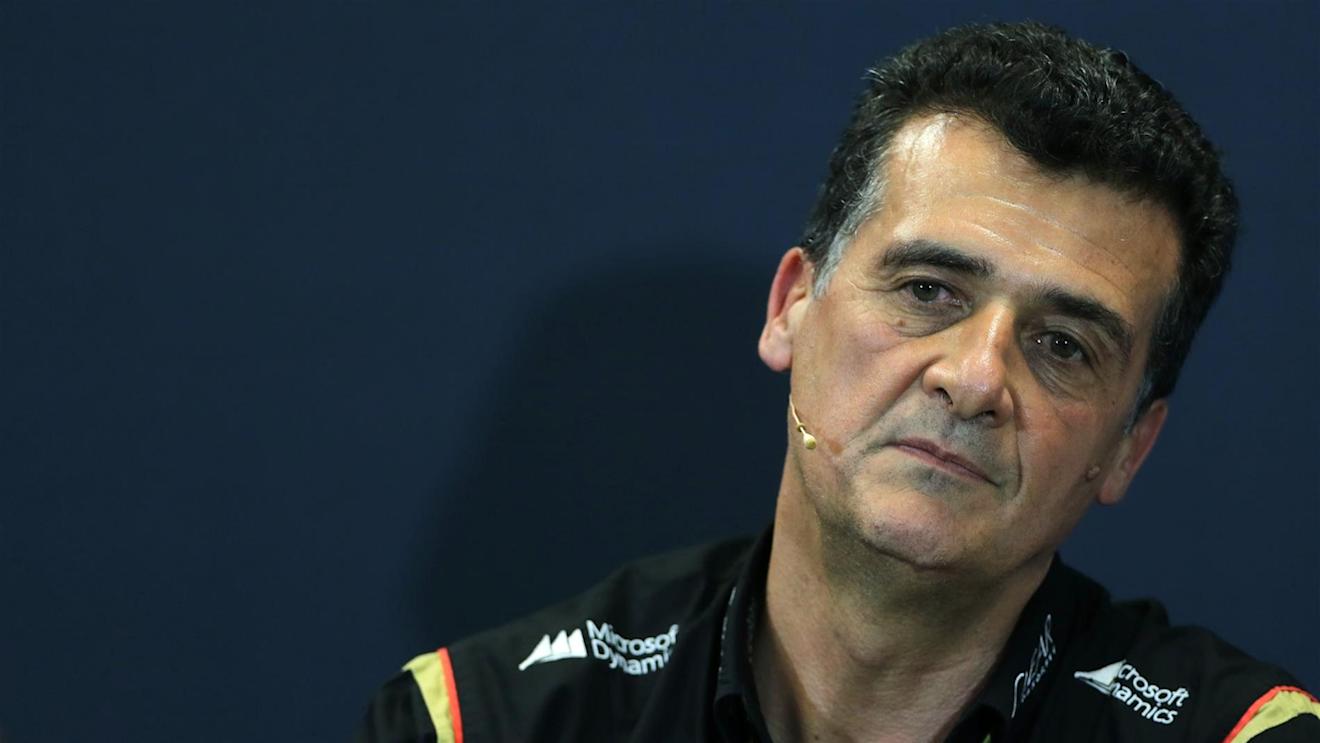
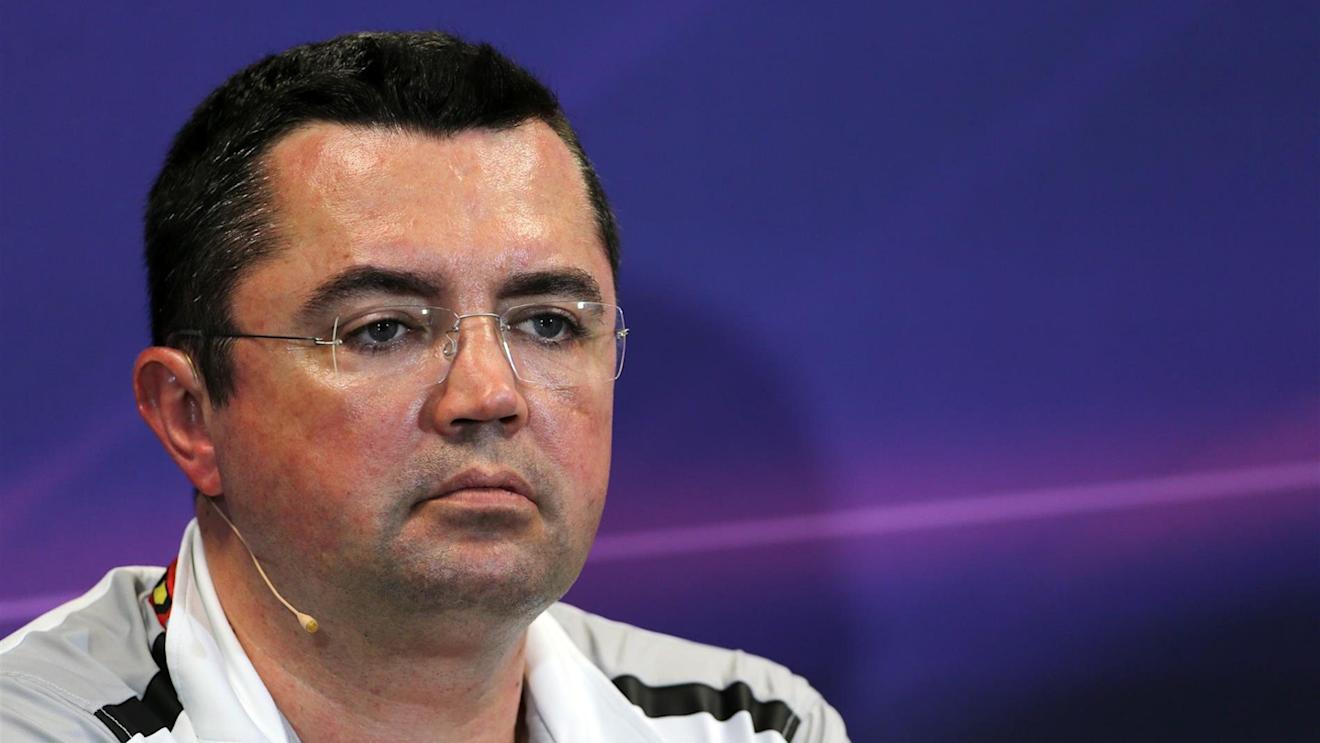
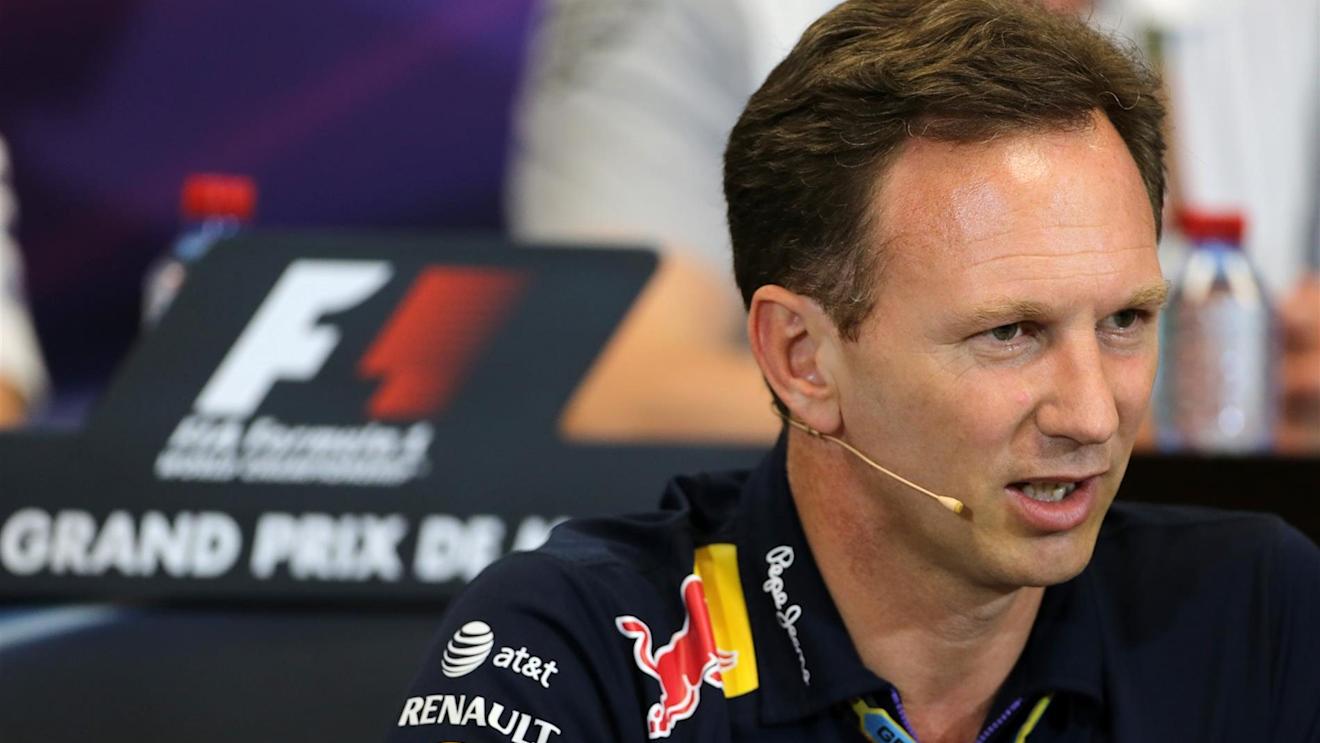
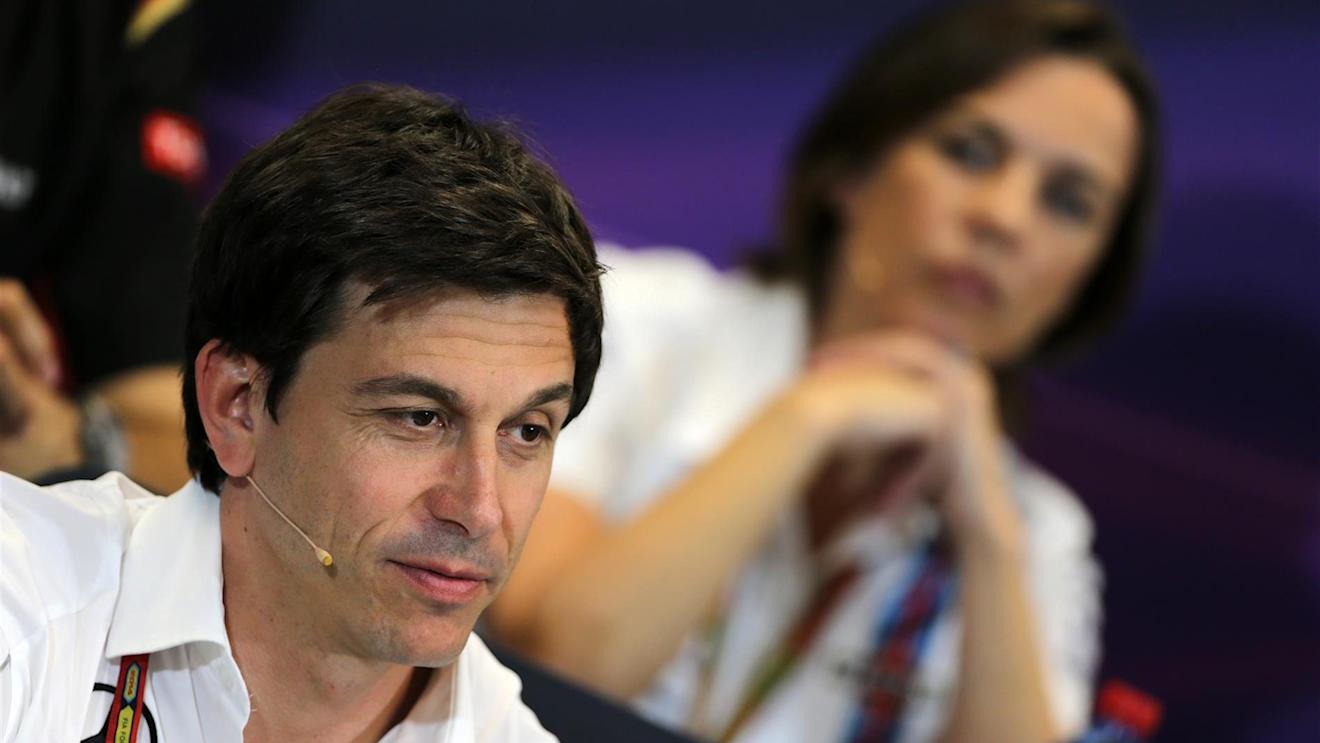
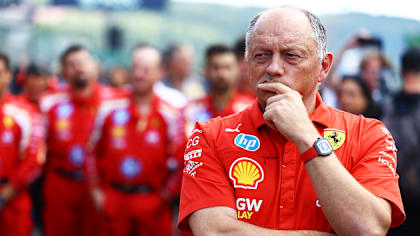
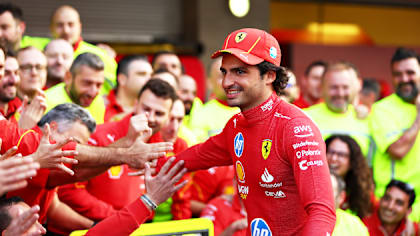
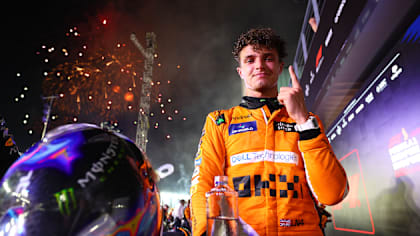
/Formula%201%20header%20template%20-%202024-12-20T122157.705)